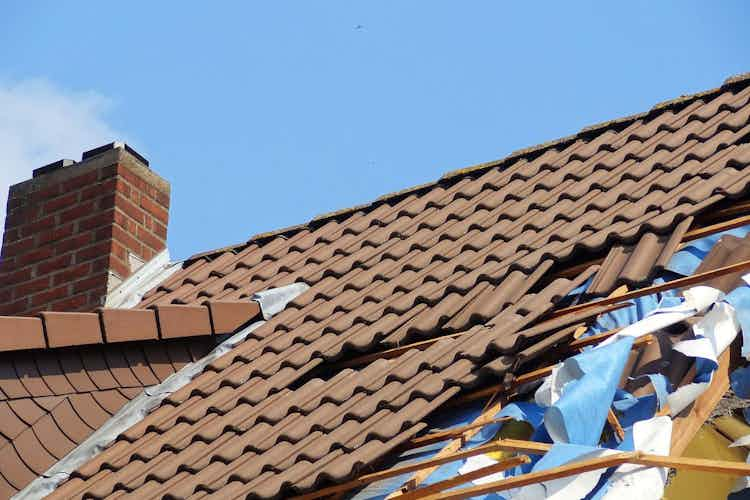When it comes to our homes or a property you own as a landlord, having peace of mind is a must. Home emergency cover can give us that, but it isn't always clear what it covers or if it's worth paying for.
Let's look at home emergency cover in-depth to understand whether it's worth buying.
What is home emergency cover?
Home emergency cover helps you cope with the aftermath of an incident - such as flooding - so it improves that vital element of home security. Having cover may make it easier to get a tradesperson to visit your home, for example, and cover the bill for labour. And it means your provider deals with the matter at hand without leaving you facing high out-of-pocket costs, which can quickly add up. Home emergency cover policies are designed to cover them so that you don't incur debts which could affect your living standards.
Why do I need home emergency cover?
It's a good idea to buy home emergency cover policies for several reasons. Most importantly, they can help you cover the cost of fixing several issues and additional costs associated with things you may not ordinarily consider an emergency. As a result, while home emergency cover may sound like an extra expense, as it's different from a standard home contents policy, it can help you out of a financial bind.
Home insurers with whom you have a contents policy won't always pay for the callout fees, which can be far more expensive than the cost of the policy alone. Therefore, people often buy these products as an emergency might sadly happen at any time. If you claim on home contents alone, you may recoup only some of your costs.
How to buy home emergency cover
If you cannot purchase home emergency cover as an add-on to your buildings and contents insurance, don’t worry. You can shop around for the right cover to help keep your home safe.
Before looking, ensure you know what type of cover you need. Some policies come with a few exclusions, so it's worth knowing what is and isn't covered. Also, be sure that if you go for a higher level of cover, you get value for money from the extra costs. Read your potential insurance policy to see if you genuinely need the cover than brings the premium increase.
Some policies may not cover you for:
- External pipes
- Routine boiler service and maintenance
- General wear and tear to your roof
- Combi boilers that are a specific age
- Issues resulting from a lack of regular maintenance to your home
That's not to say that all types of insurance coverage you buy won't also include the above. They may well do, so double-check the claims you can make before purchasing.
Factors to consider
Some factors worth considering when purchasing a policy include:
- The maximum amount you can claim
- How many times you can make a callout, and if there are any callout fees
- If claims made in the first 14 days of your policy will be honoured
- If your home policy is invalidated should your home be unoccupied for longer than a month
- The price of the policy
You should also consider the following factors before approaching home insurers:
- If you can reclaim the cost of alternative accommodation if you have to leave your home for a specific period
- What types of water damage your policy covers
- If your home emergency policy covers remedying pest infestations
- If your policy includes cover for damage to your central heating system, including radiators
While it's a good idea to consider each of these factors, what’s most important to you will depend on your needs.
Again, double-check the terms and conditions of any policy before you start paying for it to ensure you have the coverage you need.
What does home emergency cover usually include?
What counts as an emergency varies from policy to policy, but the majority will typically include the following:
- Electrical failure
- Drainage and plumbing issues
- Pest infestation such as wasps, rats, and mice
- Damage to your roof after a storm
- Lost house keys and broken locks on your front door
They may also:
- Cover the costs of alternative places to stay
- Cover the cost of callout fees and repairs
While some home insurance providers may offer something different, you could be at an advantage if you have a standalone home emergency policy. Dedicated policies might provide you with more comprehensive coverage than an add-on to your home insurance policy, even if you will pay a little more overall.
In the event of a flooding incident, for example, dedicated emergency home cover may help you get organised quicker than your home insurance. This might also ensure you reduce out-of-pocket expenses or avoid ending up with balances sitting on a credit card, for example, while you wait for your claim on your home policy to go through. The cost of repairing the damage can be sky-high, particularly as you'll likely need to get a registered tradesperson to help. The best policies will cover the cost of this.
What doesn’t a standard home insurance policy cover usually include?
Home emergency insurance only covers some incidents or emergencies. Plus, remember, it is not a home contents policy. It's likely that your home emergency plan won't cover the following:
- Issues caused by lack of maintenance, wear and tear, and poor handiwork
- Damage as a result of blockages or hard water deposits
- Appliance breakdowns, such as showers and washing machines
- Power cuts caused by external wiring
- Floods caused by leaking external pipes
- If the total cost of the emergency cover fees are more than the maximum callout charges and parts with labour and VAT
- Emergencies that occur within 14 days of the policy’s start date
- Other things that may not be included are:
- Boilers still under warranty that have not been serviced or are very old. Note that some policies include boiler cover with an annual boiler service.
- Homes that have been unoccupied for 30 or 60 days in a row
- Repairs that need to be made beyond the emergency repairs
Checking your existing home insurance cover
Before you take out home emergency cover, it’s always worth looking at your current contents and buildings insurance to see if any policies you have include home emergency cover. You may be able to add it to your existing policy or already have some degree of coverage.
One of the advantages of adding home emergency cover to an existing home insurance policy is that there’s only one emergency helpline number to ring. A boiler breaking, a burst pipe, or a broken down freezer could involve a call to one insurance company.
However, not all insurance providers offer home emergency cover as an add-on. If this is the case with your insurance provider, you may need to look for an individual home emergency specific insurance product.
How to reduce the need to claim on emergency home cover
There is no guarantee that an accident or any urgent issues in your home won’t take place. However, keeping your home in a good state of repair can help. You may also want to do the following:
- Have your boiler serviced annually and bleed your radiators at the same time
- Work to prevent pipes from freezing by repairing dripping taps and checking lagging pipes
- Have electrical issues repaired quickly by a qualified electrician
- Regularly inspect your roof for signs of damage
What counts as an emergency? Why individual home cover is worth it
Adding emergency cover to your home insurance or buying a standalone policy is an ideal way to ensure you’re protected in an emergency.
Consider whether such a policy is right for you, your options, and the pros and cons of each one before taking the right path for your needs, circumstances, and home.







